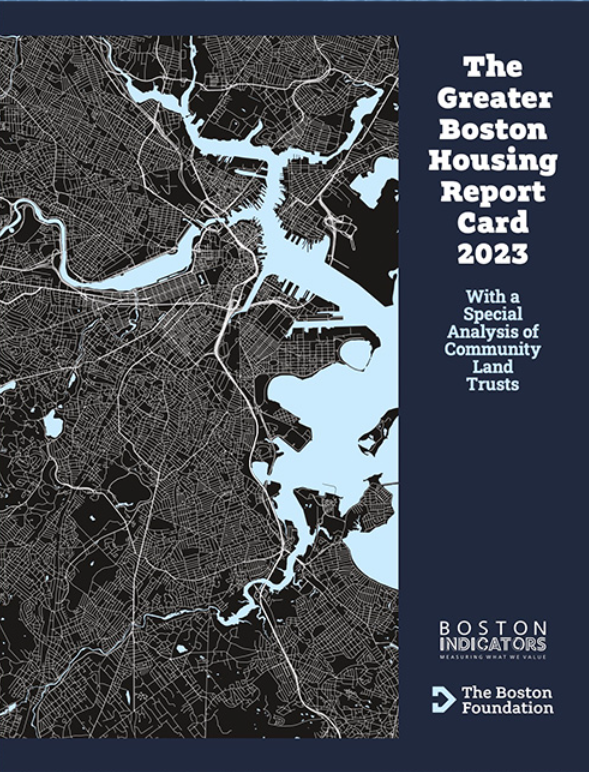Statehouse Testimony – Affordable Homes Act
January 18, 2024by Keith Mahoney, Vice President of Communications and Public Affairs
In the span of a week, I attended Mayor Wu’s State of the City address and Governor Healey’s State of the Commonwealth address. One consistent theme in those speeches (other than the fact that both were given by trailblazing women leaders) is the pressing need to address our region’s housing crisis. The day after the Governor’s address, I testified to the state legislature on behalf of the Boston Foundation on the latest—and most potentially transformative—policy proposals from the Healey-Driscoll administration: The Affordable Homes Act. I was one of scores of people who spoke in support of the bill in a six-hour hearing, and the following captures the essence of my testimony.

As discussed in the Report Card published in November 2023, Greater Boston’s economy now is at a critical juncture. The region’s successes since the late 20th century have made it a magnet for many students, entrepreneurs, and investors. Its appeal has made it expensive. Housing costs have skyrocketed to rates unattainable for most. If we don’t address the problem now, that “magnetism”—and all the cultural, scientific, and commercial vibrancy that comes with it—may soon fade.
The heart of the problem is a severe mismatch between supply and demand. We are simply not building enough housing for the newcomers we are attracting and those who wish to keep Massachusetts as their home—especially at moderate price points. Chief among the factors skewing housing to few and expensive units are the high costs of construction and exclusionary zoning regulations. Between 2000 and 2016, for every new unit of housing built in Greater Boston, we added more than two residents. Small wonder that housing costs have climbed so astronomically.
Nationwide, our entire economy suffers as a result of the insufficient housing supply in high-cost cities like Boston. Economists have demonstrated measurable loss of economic growth from workers’ avoiding the country’s highly productive metropolitan areas because of prohibitively high housing costs. Even in 2015, urbanist and professor Richard Florida elegantly summed it up: “Instead of fueling productivity and growth, too much of America’s urban economic power is simply being wasted on higher housing bills.” That was in an article called The Urban Housing Crunch Costs the U.S. Economy about $1.6 Trillion a Year.
In considering ways to make Massachusetts more “competitive,” we must fully understand that high housing costs will continue to scare off new residents and prompt those currently here to leave. The latest Housing Report Card noted that more than half of Greater Boston’s renters and a quarter of homeowners spend more than 30 percent of their income on housing costs, up significantly from 2000.
We applaud the City of Boston for its efforts to solve this issue but, ultimately, every municipality in Massachusetts must do its part. Outside the inner core, the pace of construction is far too tepid. With a few notable exceptions, most communities in Greater Boston are not building housing at a rate commensurate with their growth. There is no debating this.
As a leading convener of experts in the housing sector—including researchers, community members, advocates, developers, investors, and policymakers—TBF has released multiple reports and hosted numerous events all with the same message: The Commonwealth needs to take bold action to encourage and assist the local leaders who are fighting for housing affordability.
We commend the Healey-Driscoll Administration for doing just that by filing the legislation (H.4138) now before the Joint Committee on Housing. This bill does several things including:
- make it easier for cities and towns to allow accessory dwelling units,
- strengthen actions the Commonwealth can take to spur new growth equitably, and
- better support vulnerable communities facing displacement.
Today, the affordability and viability of our region are at stake, and we are all in this together, for a rent increase faced by a family in Brighton or Dorchester is related to a town zoning decision made in Brookline or Milton. The increasing clarity of this interconnectedness is why we are finally at a moment when leaders from across our region are coming forward and advocating for the density and variety we need to improve affordability.
TBF will continue to use all of our tools—research, convening, partnership with key stakeholders and community—to drive our advocacy for what will be transformative legislation. It is my deep hope that next year’s edition of The Greater Boston Housing Report Card will need an additional chapter on how these new policy tools can make housing more affordable, abundant, and equitable.

